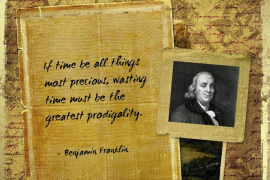Sometimes it can be useful to do some soul-searching as part of setting goals in life. Goals and strategies and their follow-up are important in this context, but do we pay enough attention to issues related to our personality and our interactions with other people? How aware are we really of how we are perceived by those around us?
The importance of being liked is different for each of us. In a world where we have become accustomed to the virtue of making a big deal out of one’s skills and asserting one’s place in society, we often put the qualities that we know deep down would benefit the external image of one’s personality second.
Often we even give a worse image of ourselves to the outside world than what we really are.
Take a self-test to see how well-liked you are
In this post, we use the 1933 book Why we don’t like people by Donald A. Laird to highlight the characteristics that make us either popular or unpopular in our environment. The book refers to a study conducted by the Colgate Psychological Laboratory in 1929 on people’s characteristics and habits. According to the study, there are 45 characteristics that determine people’s emotional attitude towards us.
The study concluded that the traits can be put into 3 different categories based on how significant these traits are in terms of how liked or disliked we are. Based on this Donald A. Laird made a questionnaire where we can test ourselves how liked we really are by our environment.
The higher your score on the test, the more liked you are in general. The highest possible score on the test is 81. According to the author, 10% of the population has this score. The lowest score of a person who was nevertheless “generally liked” was 56. According to the author, the average score of a young person is 64. The average score of a person who was generally disliked was 30.
Being liked is not everything
Although you may not agree with some of the questions and their relevance to the context, it can be a good starting point to do some introspection on how you operate in your environment.
After all, the questions are surprisingly topical, even though the book was written in 1933. It is also important to remember that the questions are written on the basis of qualities that make us liked and not on the basis of what is necessarily good for us.
You can also read more about what makes us likeable in the following article.
Qualities that make us liked
Give yourself 3 points for each of these questions to which you answer “yes”:
- Can you always be trusted to do what you say you will do?
- Do you give others space and have the ability to help even with pleasure?
- Do you avoid exaggeration in your statements?
- Do you avoid being sarcastic?
- Do you refrain from bragging about how much you know?
- Do you feel inferior to most of your colleagues?
- Do you avoid “bossing over” people who are not employed by you?
- Do you refrain from reprimanding people who do things you don’t like?
- Do you avoid making fun of others behind their backs?
- Do you refrain from dominating others?
Give yourself 2 points for the following questions to which you answer “yes”:
- Do you keep your clothes clean and tidy?
- Do you avoid being cheeky and rude?
- Do you avoid laughing at other people’s mistakes?
- Is your attitude towards the opposite sex free from vulgarity?
- Do you avoid finding fault with everyday things?
- Do you let mistakes made by others pass without correcting them?
- Do you like to lend things to others?
- Are you careful not to tell stories that might make other listeners uncomfortable?
- Do you let others do things their own way?
- Can you always control your temper?
- Do you stay out of arguments?
- Do you smile pleasantly?
- Do you avoid talking incessantly?
- Do you stay completely out of other private affairs?
Give yourself 1 point for each question to which you answer ‘yes’ from the following category of questions:
- Are you patient with modern ideas?
- Do you avoid flattering others?
- Do you avoid gossip?
- Do you refrain from repeating what they just said?
- Do you avoid asking questions to keep a conversation alive?
- Do you avoid asking for favours from others?
- Do you avoid trying to change others?
- Do you keep your personal concerns to yourself?
- Are you natural rather than resorting?
- Are you usually cheerful?
- Are you conservative when it comes to political issues?
- Are you enthusiastic rather than lazy?
- Do you pronounce words correctly?
- Do you look at others without suspicion?
- Do you avoid being lazy?
- Do you avoid borrowing things?
- Do you refrain from telling people about their moral duties?
- Do you refrain from trying to convert people to your own beliefs?
- Do you avoid speaking too quickly?
- Do you avoid laughing out loud?
- Do you avoid making fun of people in front of them?









